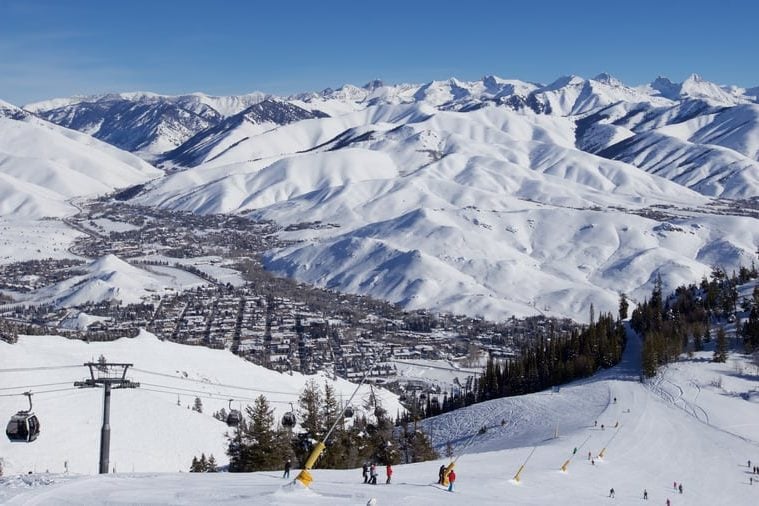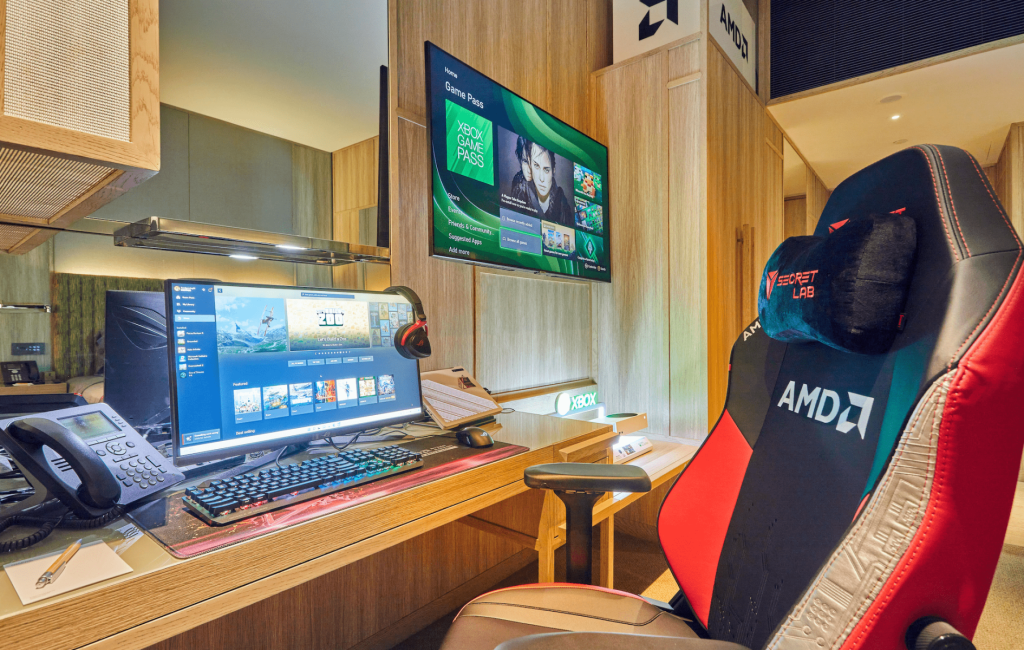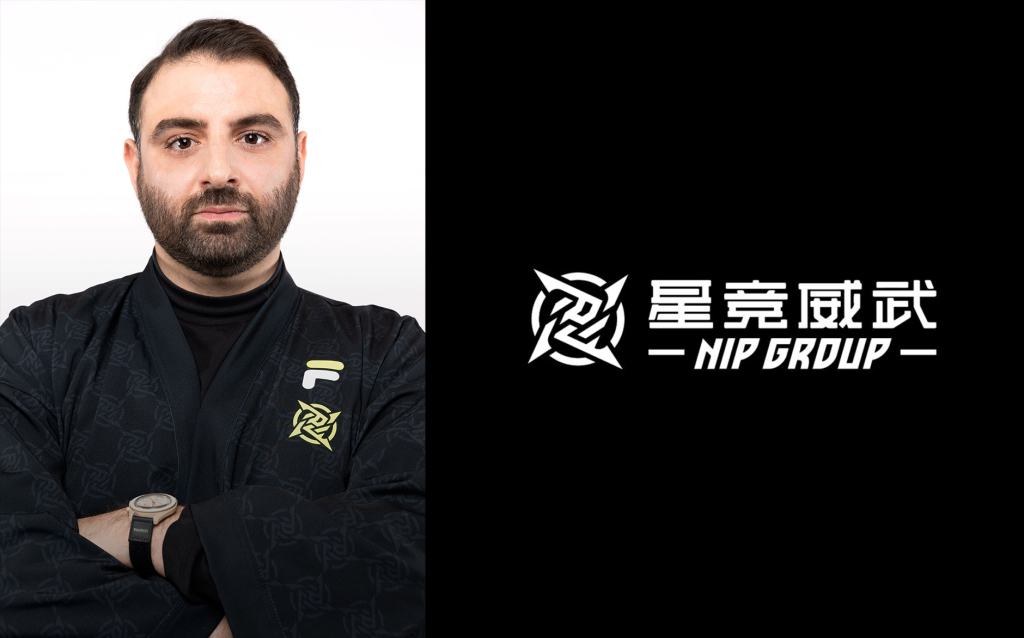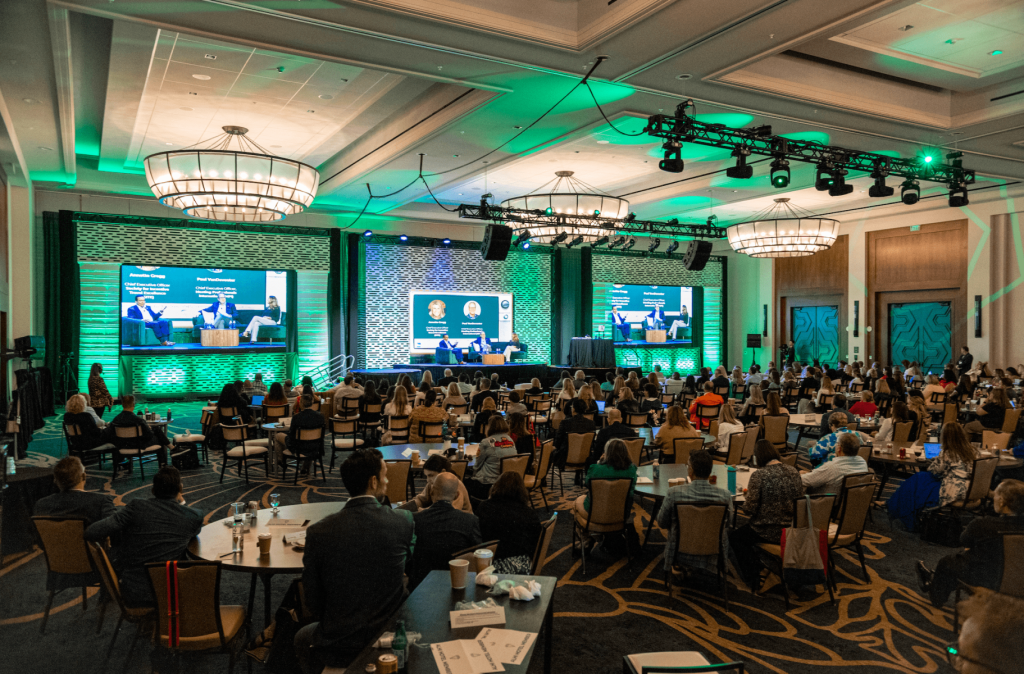
Offline esports events are the crème de la crème of the industry. Despite being digital in nature, competitive gaming thrives when teams compete in the same location. Nothing quite matches the atmosphere when rivalries are played out by pros at the top of their game in front of thousands of loud, diehard fans.
These spectacles vary in scale and can range from league matches taking place in dedicated studios (such as the Riot Games Arena in Berlin) to major international events at the likes of London’s Copper Box or the 02 Arena. Ultimately, esports is about providing entertainment for those watching in-person and online, and how an event runs is crucial — both logistically and in terms of production.
With that in mind, perhaps the hospitality industry can be of service. Ultimately, can hotels and esports mutually benefit each other?
Esports Insider was invited to the 2024 Fall ALHI Executive Exchange, an invite-only event that gathers some of the hospitality industry’s key stakeholders to find out what key decision-makers from luxury hotels and resorts think about the potential integration of esports and gaming.
(Disclaimer: ALHI paid for Esports Insider’s travel to attend the 2024 Fall ALHI Executive Exchange)
Why hotels and resorts can, and should, tap into the esports industry
When attending the event at Omni La Costa Resort & Spa in Carlsbad, near San Diego, there was a keen sense of intrigue around esports and gaming from attendees — many of which are owners/operators of hotels and resorts across the US and globally.
Founded in 1986, ALHI is a global sales and marketing company that has a membership portfolio of over 250 luxury hotels and resorts, cruise lines and destination management businesses that span across the US, the Americas, Europe, the Caribbean, the Middle East, Asia and Africa.
One topic that came up, in particular, was how esports events could be used to fill up space often less occupied during ‘off-season’, which naturally varies based on where the hotel is based but is a universal challenge for the sector.
“This is what we would call a speciality market,” explained Michael Dominguez, President & CEO for Associated Luxury Hotels International (ALHI). “The speciality markets are actually trying to say, ‘You have a need. We have a gap’ and that becomes a really great marriage. So we know that’s the opportunity.

“When you look at it we have 250 plus hotels worldwide, it gives us a lot of variety to make that happen.”
Utilising facilities that are available at high-end resorts and hotels during off-season periods provides a range of benefits. Not only does the hotel get to rent out its space and accommodate players, but tournament organisers get somewhat of an all-in-one solution logistically.
“Anything around esports, it requires production, it requires travel, it requires hotels, all of the pieces that are in our ecosystem to begin with and it’s a missed opportunity for us as a whole,” Dominguez added.
Echoing Dominguez’s sentiment about how esports can fill up a crucial part of the holiday calendar was Andy Grinsfelder, VP of Sales and Marketing at Grand America Hotels and Resorts.
“We [Grand America] have a resort in our portfolio called Sun Valley Resort, and it’s very busy during the ski season because it’s a world-class ski resort.
“Then it’s very good in the summer when people are travelling and playing golf and doing other outdoor activities. With the spring and fall, there’s not as much going on in the resort town. So, esports can absolutely come in, take up and help build some of that space with the hoteliers.”

An avid Dota 2 fan, who has previously attended The International, Grinsfelder has prior links to the esports sector through his previous employer Delaware North. As VP of Revenue, Sales and Marketing, Grinsfelder was at Delaware North when the hospitality company invested in Splyce in 2017. Delaware North is also an investor in New Meta Entertainment, the parent company of Dignitas.
It is important to note that more and more hotels are already seeing the benefits of embracing esports.
The InterContinental Malta has hosted Counter-Strike series ESL Pro League for the last two years, spanning four seasons. Earlier this month, energy drink behemoth Red Bull announced an Apex Legends tournament that will take place at the Godfrey Hotel in Chicago, Illinois. Moreover, Radisson Hotel Group and gaming agency Unlocked took to the stage at ESI Lisbon 2024 to discuss how the former is looking to tap into the esports market.
Hosting events also aren’t the be-all and end-all for hotels when tapping into the esports industry. Given that many of esports’ biggest international events — League of Legends World Championship, Counter-Strike Majors, The International — are travelling shows, hotels have the opportunity to engage with esports communities who are travelling to these events.
“The more you understand it [esports], the more you know there’s an audience that will travel to be able to be a part of this,” Dominguez highlighted.
“Take something like the NFL, when they do the Super Bowl, there’s an entire week of an NFL experience. It has nothing to do with the game, but it has to do with the experience of the city. How do you tie in the NFL experience into the city in smaller and smaller touchpoints? I think we have the same opportunity in esports with some of the largest events that you put on.”
As Dominguez touched on, using the destination tourism that esports brings in doesn’t just have to be physically being a part of the event. Cresting mini-events and marketing activations that attract those customers to hotels and resorts can also be a useful tactic.
For example, during The International 2022 in Singapore, PARKROYAL COLLECTION Pickering, collaborated with AMD x Asus and Microsoft to launch a suite specifically designed for gamers and esports fans. In 2024, the LEC (League of Legends EMEA Championship) teamed up with Marriott Bonvoy for its finals in Germany. Fans who attended the finals in Munich were able to purchase an exclusive hotel package.

Opportunities to attract new customers aren’t just restricted to solely esports. Whilst the likes of PARKROYAL COLLECTION and W London have launched limited-edition esports rooms, creating permanent fixtures for gaming and esports audiences within public spaces could also be another step.
As more and more generations grow up with gaming culture embedded into their life, hotel arcade rooms could soon be revamped to include PCs and consoles to enhance customer experiences. Akin to having facilities available such as a gym and swimming pool, perhaps in the future ‘esports and gaming rooms’ could be soon added to hotel descriptions.
Hotels and resorts also have the opportunity to tap into the wider gaming community by creating relationships, and partnerships, with large-scale gaming culture festivals such as September’s TwitchCon in San Diego. These events provide thousands of new customers to locations, such as the Hard Rock Hotel San Diego, so it’s important for the hospitality industry to react when these mega festivals take place.
Creating experiences and promotions to entice esports and gaming customers is perhaps even more pressing given that it is difficult for most hotels and resorts to host large-scale festivals due to size limitations.
How esports benefits and the rise of esport hotels
The relationship between esports and the hospitality industry benefits both sides. Alongside potentially accommodating the hosting of the tournaments themselves,, hotel partnerships can solve the ongoing issue of finding accommodation for travelling teams.
To provide an esports perspective on how hotel collaborations can benefit esport teams specifically, Esports Insider reached out to NIP Group, a global organisation with teams competing across the world, based in Europe and China.
“Collaborating with hotel chains establishes a physical landmark esports teams can use as a nucleus for growth, a factor of real significance when you consider the digital-first environment the majority of teams find themselves in,” commented NIP Group Co-CEO Hicham Chahine.

“Being able to point to cities where you have a physical presence cannot be overstated as they serve as constant reminders for you as a brand that keeps you present in mind.
China is known as a major hub for esports, in large part due to its incredible viewership and industry developments such as dedicated team venues. As such when often looking at the potential future of esports in the West, eyes often turn to the country. Last year, a report shared by Asia Gaming Brief highlighted that there are more than 20,000 esports hotels in China since February 2023. In 2024, NIP Group teamed up with BTG Homeinns to also develop and operate esports-themed hotels in the country.
Esports hotels are facilities designed to cater to competitive gaming fans. They are purpose-built with the facilities and equipment for guests to play an array of games in their rooms.
Chahine said: “NIP Group’s recent decision to partner with BTG Homeinns opens up a world of possibilities enabling us to reach new audiences and provide a host of unique and immersive experiences for fans that enhance their enjoyment and reaffirm their allegiance.
“Imagine if Metallica owned the hotel you’re staying at for one of their concerts, the types of experiences you’d be able to create are completely next level.”
Whilst this level of collaboration might be too soon for the Western esports industry, it does offer a glimpse into how esports and hotels can be truly maximised to serve an audience.
Educating the hospitality industry
When asked whether more hotel chains will invest in the esports industry, ALHI’s President and CEO admitted that he is unsure. However, he believes that destination marketing organisations, such as Visit Raleigh, will play a significant role in bringing esports and hotels together.
“I know the destinations can. I know they get it. It’s not that the hotels don’t get it. It’s a harder capital conversation to make those kind of conversions, but to do it with the city, to do it with other partners, I think you’re going to see that more and more,” commented Dominguez.

One topic that stood out at the 2024 Fall ALHI Executive Exchange was the discussion of education. Not educating tournament organisers about potential hotel collaborations, but rather teaching the hospitality industry about the esports scene.
Late last year, ALHI launched its own esports division, appointing Neil Johnson as VP of Esports & Strategic Advising to showcase the industry to ALHI members and clients. Prior to joining ALHI Johnson was the VP for Gaming and Esports at venue-finding company HPN Global.
“Candidly, what I’ve learned very quickly is that if you’re not a gamer, and you’re not into gaming, you’re intimidated. You’re intimidated by what you don’t know. That’s just human nature,” highlighted Dominguez.
“I think we [ALHI] have an opportunity from the esports side of it, how do we start to educate and teach.”
One example Dominguez shared was simply bringing in students to teach clients and members at the 2024 ALHI Spring Executive Exchange how to play games. Whilst this may seem simple, the point is to create a better understanding of the gaming sector for those who are blind to the industry. At this exchange, Esports Insider was invited, alongside a representative from Twitch, to share more about the esports and gaming sectors.
Many of the signs of a blossoming relationship between the esports and hospitality sector are already apparent as evidenced by some of the examples mentioned here from China, to Singapore, and throughout Europe.
As more conversations and connections take place, the expectation is that more hotels and resorts develop a full understanding of esports, adopting an approach which makes sense for them. Whether that’s hosting events and/or accommodating the teams and fans, all the way through to offering a more unique guest experience, embracing gaming with dedicated, permanent spaces could become a major focus for the hospitality sector.




